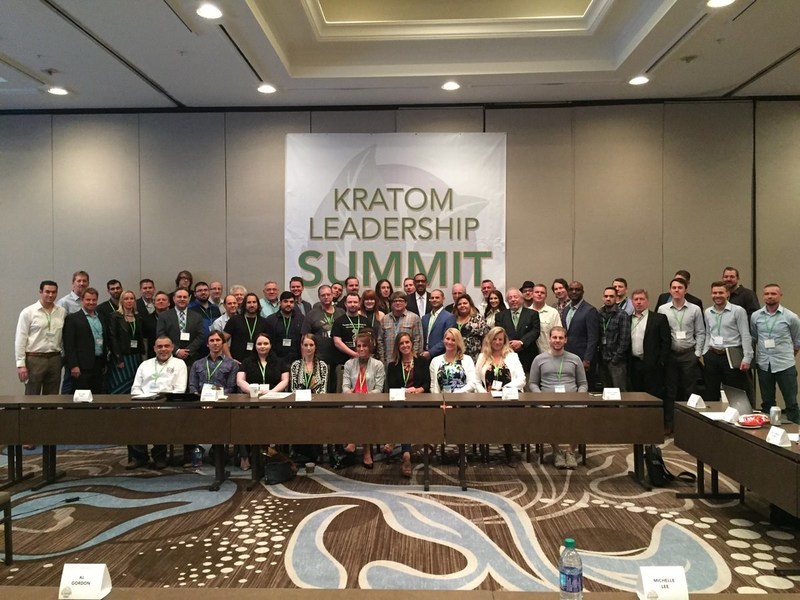ATLANTA, May 2, 2018 /PRNewswire/ — More than 50 leading kratom vendors and advocacy groups gathered to discuss the future of kratom in America at the first Kratom Leadership Summit on Monday, April 30. Hosted by the American Kratom Association, attendees discussed strategies to keep the plant legal despite efforts to ban it by the Food and Drug Administration.
“The Kratom Leadership Summit brought together dozens of leading actors in the kratom community for the first time to find common ground to overcome the challenges before us,” said American Kratom Association Board Chairman Dave Herman. “It was amazing to see so many kratom vendors and advocates dedicated to improving the lives of people nationwide through collaborative efforts.”
The Summit included presentations by leading addiction researcher and keynote speaker Dr. Jack Henningfield, molecular biologist Dr. Jane Babin, and Georgia state representative Vernon Jones. Rep. Jones moderated a number of the discussions, and provided his perspective as a lawmaker and kratom consumer.
“As a kratom consumer, I see the benefits of this plant each and every day,” said Jones. “As a public servant, I stand with the millions of Americans who, like me, understand the importance of hosting a dialogue among diverse opinions to pave a path forward for kratom industry standards and policy prescriptions.”
Henningfield told attendees that the FDA and those fighting to ban kratom are misguided in their understanding of the plant’s effects and its purported opioid-like qualities. “Kratom is no more addictive than a cup of coffee — and the available data show as much,” said Henningfield.
Dr. Henningfield discussed at length the four scientific surveys conducted on kratom and kratom users. Citing these surveys as well as his own peer-reviewed research, he said that the FDA and other kratom opponents mislead the public and lawmakers when they compare kratom to traditional opioids. “To compare this slight possibility of mild addiction, on par with caffeine, to the devastating and deadly addictions found in real opioids is to drive a lot of the fear and misunderstanding prevalent in the media.”
In addition to discussing the science of kratom and addressing the current outbreak of salmonella in some kratom products, many of the Summit’s multi-hour sessions were dedicated to creating open dialogue among key players in the kratom industry, vendors and advocacy organizations alike.
Mac Haddow, Director of Government Relations for AKA, stated that the best way to ensure a safe and legal product is together as an industry. “Communication is everything. Talking to one another through weekly meetings or conference calls is one way we can collectively identify threats like salmonella and address the key steps we as an industry must take to self-regulate and expose bad actors in the kratom space who refuse to maintain acceptable standards.”
Kratom advocacy organizations in attendance such as the Botanical Education Alliance and the Kratom Trade Association likewise said the Summit created a valuable starting point for collaboration.
“The Kratom Leadership Summit was a successful first step to uniting around common principles, with the kratom community coming together to put aside differences and discuss a way forward for the industry,” concluded Herman.
“This event and the enthusiasm it fostered proves this movement is a force to be reckoned with. The Summit’s sessions and the discussions shared by the attendees have reinvigorated and inspired those involved in the production and distribution of this life-changing plant.”
About the American Kratom Association
The American Kratom Association (AKA), a consumer-based non-profit organization, is here to set the record straight about kratom and give a voice to those who are suffering and protect their rights to possess and consume kratom. AKA represents millions of Americans, each of whom have a unique story to tell about the virtues of kratom and its positive effects on their lives.
SOURCE American Kratom Association








